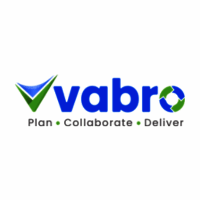Description

Kellton

Shivit ERP
Comprehensive Overview: Kellton vs Shivit ERP
As of my knowledge cutoff in October 2023, Kellton Tech and Shivit ERP are players in the Enterprise Resource Planning (ERP) software market, but they cater to different aspects of this broad spectrum and might not be direct competitors in the traditional sense. Nevertheless, I can provide an overview based on their functions, markets, and differentiating factors as observed in the industry.
a) Primary Functions and Target Markets
Kellton Tech
Primary Functions:
- Digital Transformation Services: Kellton Tech offers a range of services around digital transformation, which includes ERP implementation, custom software development, and IT consulting.
- ERP Services: They provide ERP solutions catering to a variety of business needs, focusing on integration, automation, and improvement of business processes.
Target Markets:
- Mid-sized to Large Enterprises: They target mid-sized to large enterprises across various industries that are looking for comprehensive digital transformation and IT solutions.
- Global Reach: Since Kellton Tech is a global company, its services are marketed worldwide.
Shivit ERP
Primary Functions:
- Core ERP Modules: Shivit ERP typically includes modules like financial management, supply chain, manufacturing, human resources, and customer relationship management, aimed at streamlining business operations.
- Customization & Integration: Provides customizable solutions that can be tailored to meet the specific needs of the business.
Target Markets:
- Small to Mid-sized Enterprises (SMEs): Shivit ERP often targets small to mid-sized enterprises that require tailored ERP solutions to enhance their operational efficiency.
- Industry-Specific Solutions: Focuses on industries like manufacturing, distribution, and retail.
b) Market Share and User Base
-
Kellton Tech:
- Market Share: As a service provider rather than a product-centric company, Kellton Tech’s market share in ERP is not as easily quantifiable as that of product-based companies like SAP or Oracle. However, Kellton's emphasis on digital transformation services means they have a significant presence in the market for integrative ERP solutions.
- User Base: They have a broad user base leveraging their ERP consulting and implementation services, mainly in larger corporations seeking tailored integration solutions.
-
Shivit ERP:
- Market Share: Shivit ERP would typically hold a smaller market share compared to global ERP leaders, often focusing on niche markets.
- User Base: Popular among SMEs, particularly those needing industry-specific solutions where large ERP systems may not be cost-effective or flexible enough.
c) Key Differentiating Factors
-
Approach and Flexibility:
- Kellton Tech has a broader approach as a digital transformation partner, offering a range of IT and consulting services. Their strength lies in integration and customization, designed for larger firms with complex needs.
- Shivit ERP provides more tailored, comprehensive ERP solutions that cater largely to SMEs, emphasizing flexibility and cost-effectiveness.
-
Industry Focus:
- Kellton Tech has a broader industry reach due to its vast array of services, making it suitable for businesses looking for end-to-end digital solutions across multiple platforms.
- Shivit ERP often narrows its focus to specific industries where tailored ERP modules and cost efficiency are critical.
-
Implementation and Support:
- Kellton Tech offers extensive implementation support relying on its consulting expertise, which is crucial for large-scale, complex ERP projects.
- Shivit ERP emphasizes ease of implementation and support for smaller businesses where resource allocation is a crucial factor.
Both providers serve the ERP market but from significantly different perspectives. Kellton Tech, as a service-focused firm, excels in integration and digital transformation, while Shivit ERP delivers modular ERPs designed to be more manageable for smaller enterprises. Their differentiation mainly comes down to the size and specific needs of their target markets.
Contact Info

Year founded :
Not Available
+91 40 4433 3000
Not Available
India
http://www.linkedin.com/company/kellton-securities-ltd

Year founded :
Not Available
Not Available
Not Available
Not Available
Not Available
Feature Similarity Breakdown: Kellton, Shivit ERP
As of my last update, detailed product comparison on specific ERP systems like Kellton and Shivit ERP may vary depending on their respective updates and enhancements. However, I can offer a general framework to approach this comparison based on typical ERP features and interfaces. For precise evaluations, it's advisable to consult the latest product documentation or demos from each company. Here's a general breakdown:
a) Core Features in Common
-
Financial Management:
- Both systems often include modules for managing accounts payable/receivable, general ledger, billing, and financial reporting.
-
Supply Chain Management (SCM):
- They typically provide tools for inventory management, procurement, order processing, and supplier management.
-
Human Resource Management (HRM):
- Modules for handling payroll, employee records, recruitment, and performance evaluations are common.
-
Customer Relationship Management (CRM):
- Features typically include tools for sales, customer service, marketing automation, and contact management.
-
Project Management:
- Both systems might offer functionalities for project planning, resource allocation, time tracking, and collaboration.
-
Analytics and Reporting:
- Most ERP systems provide dashboards, KPIs, and customizable reports for data-driven insights.
b) User Interface Comparison
-
Design and Usability:
- Both products likely emphasize a user-friendly interface, but the aesthetics and ease of navigation may differ based on design philosophy.
-
Customization and Flexibility:
- Each platform will offer varying degrees of customization for dashboards and reporting tools, often depending on the target audience.
-
Cross-Platform Access:
- Look for differences in mobile access and the availability of desktop versus web-based applications.
c) Unique Features
-
Kellton ERP:
- May emphasize certain industry-specific solutions or integrations with specific technology platforms they partner with.
- Could offer enhanced customization capabilities or unique modules tailored to specific business processes.
-
Shivit ERP:
- Might have unique strengths in terms of affordability or specific market focus, such as catering more to SMBs versus large enterprises.
- Could feature unique automation options or AI-driven insights differentiating it from competitors.
Conclusion
When assessing ERP systems like Kellton and Shivit, the key is to prioritize the features that align with your business needs. Look beyond core features to understand how each system handles scalability, support, and future growth. Engaging in demos and customer reviews can provide deeper insights into the real-world applicability of these tools.
Features

Not Available

Not Available
Best Fit Use Cases: Kellton, Shivit ERP
Kellton and Shivit ERP systems are designed to cater to various industry needs, each having unique features and strengths that make them suitable for specific types of businesses and project requirements.
a) Best Fit Use Cases for Kellton
-
Complex Customizations and Integrations:
- Types of Businesses: Kellton is an ideal choice for medium to large enterprises that require complex customizations and integrations with existing systems. Its strengths lie in its ability to create tailored solutions that align with specific business processes, making it suitable for companies looking for a high degree of flexibility.
-
Global Operations and Scalability:
- Projects: It is well-suited for projects involving multinational operations that demand scalability and support across different geographical locations and languages. Companies with diverse and expanding operations can benefit from its robust architecture and scalability.
-
Technology-Oriented Businesses:
- Industry Focus: Kellton is particularly strong in technology-heavy sectors such as IT services, telecommunications, and digital transformation projects. Its expertise in cutting-edge technologies like IoT, AI, and cloud computing is advantageous for tech-centric industries.
b) Preferred Use Cases for Shivit ERP
-
SMEs and Cost-Efficiency:
- Types of Businesses: Shivit ERP is often the preferred option for small to medium-sized enterprises (SMEs) due to its cost-effective solutions and straightforward implementation. It caters well to businesses that require essential ERP functionalities without the complexities or costs associated with larger systems.
-
Rapid Deployment Projects:
- Scenarios: In situations where businesses need a quick deployment of ERP systems, Shivit ERP's streamlined processes and user-friendly interfaces become advantageous. It enables companies to achieve operational efficiency faster with less downtime.
-
Industries with Standardized Processes:
- Industry Focus: Shivit ERP is a good fit for industries with standardized processes such as manufacturing, retail, and distribution. Its modules are often designed to meet the needs of these sectors efficiently without requiring extensive customization.
d) Catering to Different Industry Verticals and Company Sizes
-
Kellton ERP:
- Industry Verticals: It's suited for industries that require intensive business process management and integration capabilities, such as finance, healthcare, and logistics.
- Company Sizes: Kellton's solutions are typically more scalable, making them ideal for larger organizations and enterprises that need comprehensive solutions to manage complex operations across multiple departments and regions.
-
Shivit ERP:
- Industry Verticals: It focuses on industries that benefit from standardized ERP processes and functionalities, such as retail, manufacturing, and small-scale distribution businesses.
- Company Sizes: Shivit ERP excels in providing solutions to small and medium-sized businesses due to its affordability and ease of use, offering essential features that are easy to maintain and upgrade.
In summary, while Kellton is ideal for larger businesses with complex needs and a focus on technological integration, Shivit ERP is better suited for SMEs looking for cost-efficient and quick-to-implement solutions. Both cater to different industry needs by leveraging their unique strengths in customization, scalability, and user-friendliness.
Pricing

Pricing Not Available

Pricing Not Available
Metrics History
Metrics History
Comparing teamSize across companies
Conclusion & Final Verdict: Kellton vs Shivit ERP
To conclude and provide a final verdict comparing Kellton and Shivit ERP solutions, it's important to consider a variety of factors including functionality, cost, user experience, scalability, support, and industry focus. Here's a comprehensive analysis:
a) Best Overall Value
Kellton ERP generally provides the best overall value for businesses seeking comprehensive integration and customization, particularly within industries that need robust support for digital transformation and modern technology stack integration. It excels in environments that require flexible solutions that can adapt to evolving business needs and incorporate AI, IoT, and other advanced features.
Shivit ERP, on the other hand, might offer better value for smaller businesses or those seeking straightforward, industry-specific solutions on a tighter budget. It is potentially less costly while still providing essential ERP functionalities, making it ideal for companies with more traditional ERP needs that do not require extensive customization or integration with advanced technologies.
b) Pros and Cons
Kellton ERP
-
Pros:
- Highly customizable and scalable – it is particularly suited for businesses planning significant growth or those needing tailored solutions.
- Strong integration capabilities with contemporary technologies like AI and IoT.
- Broad industry applications, providing versatility for diverse business models.
-
Cons:
- Potentially higher cost due to its extensive features and customization options.
- Implementation can be more complex and time-consuming, requiring a more substantial IT resource commitment.
Shivit ERP
-
Pros:
- Cost-effective for small to mid-sized enterprises.
- Streamlined implementation process with potentially shorter time to get up and running.
- Offers targeted solutions for specific industries with pre-configured functionalities.
-
Cons:
- Limited customization might not meet the demands of more complex business processes or significant growth plans.
- More traditional in its integration capabilities, possibly lacking in cutting-edge technological support.
c) Recommendations
For users deciding between Kellton and Shivit ERP:
-
Choose Kellton ERP if:
- Your company anticipates rapid growth and requires a highly scalable solution.
- Your business processes are complex and need significant customization.
- You require integration with modern technologies such as AI and IoT.
- Your industry demands atypical ERP functionalities or innovative digital transformation.
-
Choose Shivit ERP if:
- You are a small to medium-sized enterprise with a limited budget focused on essential ERP functionalities.
- Your industry has specific, conventional requirements that Shivit can address with its more straightforward solutions.
- You prioritize a quicker, less resource-intensive implementation.
- Customization needs are minimal, and you value ease of use over extensive personalization.
Ultimately, the decision between Kellton and Shivit ERP should be based on a careful assessment of your business's current needs and future aspirations, taking into account budget constraints and technological demands. Conducting a thorough needs assessment and possibly engaging with each provider for demos or consultations can further refine your choice.
Add to compare
Add similar companies



